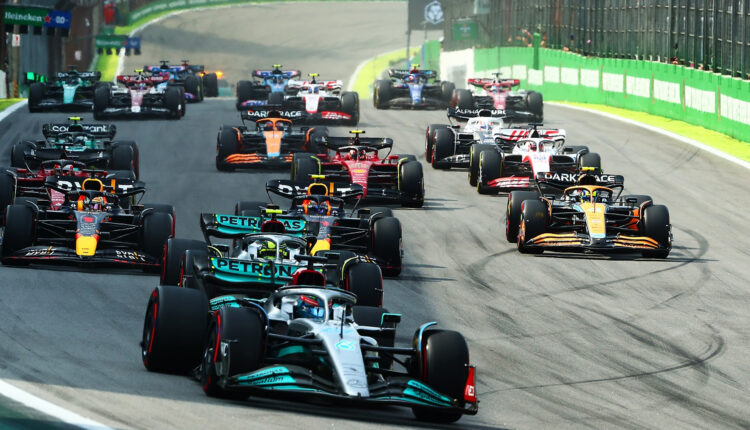Memorable Formula 1 Races
Relive the Unforgettable Moments That Marked the History of F1

The Beginning of an Era: The 1950 British Grand Prix
The 1950 British Grand Prix is a race etched in Formula 1 history. It marked the beginning of the Formula 1 World Championship, setting standards and sparking excitement in motorsport fans. The race took place at Silverstone, a venue that quickly gained prominence. This race’s significance is undeniable as it showcased the raw power and potential of Formula 1 vehicles. Alfa Romeo’s dominance was evident, capturing the first three positions. The event was not just about speed; it was a celebration of innovation and competitive spirit, laying a solid foundation for the sport as we know it today.
The Legendary Battle: Ayrton Senna vs Alain Prost
The fierce rivalry between Ayrton Senna and Alain Prost provided fans with countless memorable moments. One of the standout races was at the 1989 Japanese Grand Prix. This race became iconic due to the tactical and personal battles between these two giants of Formula 1. The competition was intense, with both drivers showing unparalleled skill and determination. In that particular race, a collision at the Suzuka Circuit ultimately decided the championship, symbolizing the fierce competitiveness that defines Formula 1. This race remains a classic, representing the intense passion and drama of the sport.
Impact on F1’s Competitive Landscape
The Senna-Prost rivalry brought about significant changes in the Formula 1 landscape. This clash not only captivated the audience but also pushed teams to innovate continually. The need for superior aerodynamics and enhanced strategies became more prominent. This race emphasized the importance of both driver skill and technological advancement, influencing future races significantly.
A Race Against All Odds: 2008 Brazilian Grand Prix
The 2008 Brazilian Grand Prix is another unforgettable moment in Formula 1’s rich history. Lewis Hamilton’s championship victory in this race was a testament to perseverance and strategic excellence. Held at the Interlagos Circuit, this race was dramatic from start to finish. Hamilton needed to finish at least fifth to win the championship. In a nail-biting finish, he achieved this feat in the last corners of the race, showcasing incredible composure. This dramatic culmination ensured the race’s place in F1 history, reflecting the unpredictable and thrilling nature of the sport.
Importance of Strategy and Timing
Hamilton’s victory highlighted the significance of strategy and timing in Formula 1. Every pit stop and tire change can dramatically alter a race’s outcome. Teams analyze every data point to make split-second decisions. The 2008 race taught important lessons about adaptability and calmness under pressure, elements crucial for any successful Formula 1 team.
Technological Triumph: The 2010 Korean Grand Prix
The 2010 Korean Grand Prix stood out for its challenging weather conditions and the resilience of drivers and teams. This race was a proving ground for technological advancements within Formula 1. The heavy rain tested the teams’ and drivers’ ability to adapt to adverse conditions. Sebastian Vettel’s unfortunate engine failure demonstrated the fine line between triumph and disaster. This race underscored the importance of reliability and technological durability, setting new expectations and standards for engineering excellence in motorsport.
Evolution of Racecraft
The Korean Grand Prix was pivotal in demonstrating the evolution of racecraft. As cars became more sophisticated, so did the demands on drivers. Mastering the art of driving in wet conditions became increasingly important, pushing teams to explore new technologies to enhance grip and stability.
Revolution in Speed: The 2014 Bahrain Grand Prix
The 2014 Bahrain Grand Prix is memorable for its thrilling on-track battles, particularly between teammates Lewis Hamilton and Nico Rosberg. This race was significant in demonstrating the potential of hybrid technology in Formula 1. The improved energy efficiency and performance of hybrid engines were on full display. The intense duel between Hamilton and Rosberg showcased the balance of skill and technology, capturing the essence of modern Formula 1. This race marked a turning point, proving that sustainability and high performance can coexist in motorsports.
Hybrid Technology’s Influence on Racing
The 2014 Bahrain Grand Prix illuminated how hybrid technology transformed Formula 1. These advancements paved the way for more sustainable and efficient racing. Teams constantly innovate to enhance power while reducing emissions, setting a path for the future of motorsport.
Cultural Impact: The Monaco Grand Prix
The Monaco Grand Prix has always been more than just a race; it is a cultural phenomenon. Known for its glamorous setting, the challenges of the narrow and winding streets of Monte Carlo make it legendary. This race exemplifies the blend of skill, precision, and prestige. The glamour associated with Monaco transcends the racetrack, becoming a symbol of Formula 1’s allure. Numerous unforgettable moments have unfolded at Monaco, each contributing to its legendary status.
Prestigious Yet Perilous
Monaco’s unique challenges set it apart as a prestigious yet perilous event. Drivers must navigate sharp corners and limited overtaking opportunities, demanding unwavering focus and precision. Conquering Monaco cements a driver’s status, proving their skill and daring.
Each of these Formula 1 races has left an indelible mark on the sport. From rivalries to technological advancements, these races captivate and thrill fans worldwide, embodying the passion and spirit of Formula 1 racing.
